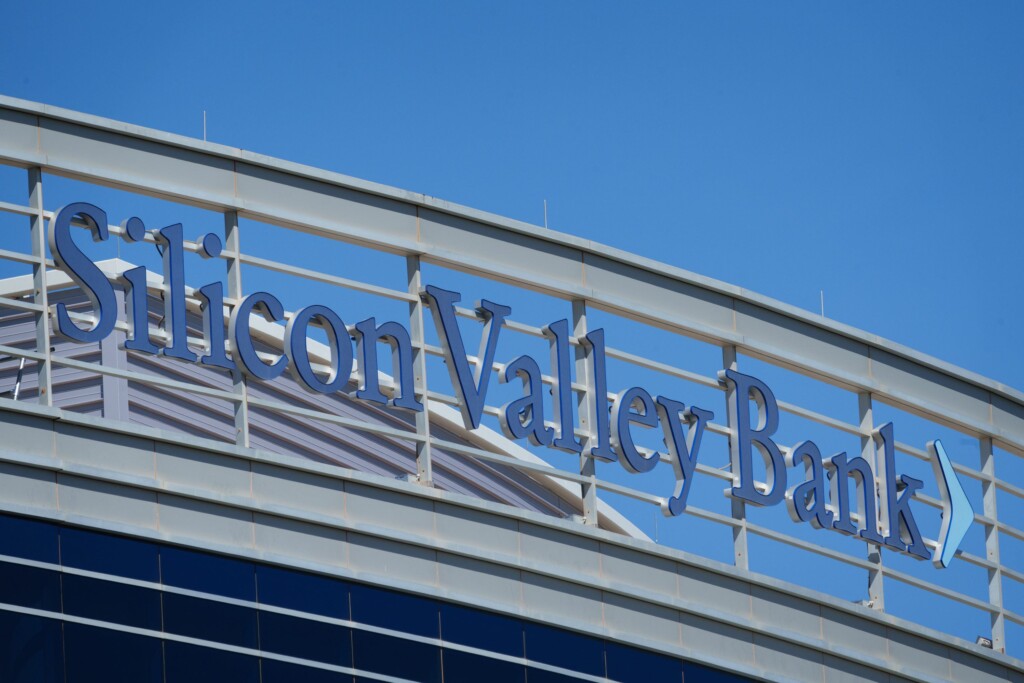Last updated, 3/13, 1:45 p.m.
The news that Silicon Valley Bank failed last week made global headlines, but unless you follow the business world closely, you might think that the risk was largely confined to Silicon Valley.
However, the bank was where many American startups parked their money, which included funds from venture capital firms and other investors. Silicon Valley Bank has three locations in Texas, including one in an office park in Richardson. Some North Texas businesses were impacted by the bank’s collapse, including the Mark Cuban Cost Plus Drug Company and rideshare company Alto.
Economics writer Noah Smith probably has the best explanation of what is going on here. However, the TL;DR explanation of what happened is this: Over-invested in long-term mortgage-backed securities, Silicon Valley Bank began to feel a pinch as the value of those securities dropped while lending rates rose. (In fact, last Monday, FDIC Chair Martin Gruenberg warned a group of bankers that some banks’ positions in those securities meant about a $620 billion risk to the country’s financial system.)
SVB sold its investment for a nearly $2 billion loss then needed to raise about $2.5 billion to offset that loss. Venture capital firms saw this predicament and warned their portfolio companies to withdraw their funds, triggering a run on the bank that caused it to be cash negative by around Thursday evening. On Friday morning, regulators closed the bank, and the Federal Deposit Insurance Corp. said that it would insure deposits of up to $250,000.
By Friday, companies that had money deposited with the bank were starting to reach out to customers, employees, and investors to provide status updates.
The toy store chain Camp (which has a location in Dallas), for instance, told customers that it had “most of our company’s cash assets” at the bank. Bill Tyler, the chief operating officer of Grapevine’s TWG Supply, told the Associated Press that its payroll services provider used the bank, and his 18 employees didn’t get paychecks Friday.
Alto CEO Will Coleman told KRLD Monday that the company has a debt facility with the bank, he said, as well as most of its deposits.
“Our primary banking partner is Silicon Valley Bank. They’ve been a great partner of ours for a long time,” he said.
Coleman said that he felt that the company had managed those deposits in a “thoughtful” way that kept most of the company’s money in a mutual fund brokered by the bank, that was on deposit with Morgan Stanley.
Mark Cuban said his exposure was $8 to $10 million thanks to the companies in which he invests. He also said the Mark Cuban Cost Plus Drug Company had about $3 million with SVB. In a Twitter thread discussing the fallout, he added that he had “zero personal funds there.”
Cuban also asked about the lack of regulation when it came to banks like SVB. “Where were regulators? They are supposed to watch and warn,” he asked. An article in Fortune points to arguments that partially blamed the rollback of Dodd-Frank Bill regulations that were enacted after the 2008 banking crisis.
In May 2018, the Trump administration moved the threshold for when a bank would be subject to additional regulations from $50 billion in assets to $250 billion. By moving the goalpost, it meant that banks like SVB, which had just hit $50 billion at the time, weren’t subject to stress tests and other requirements that gauge the financial health of the institutions. In fact, in 2015, SVB CEO Greg Becker was one of the bankers who urged the government to increase its threshold. By 2022, the bank’s assets hit $220 billion, still $30 billion below the mark that would call for additional oversight.
Sunday, the FDIC and the Federal Reserve said they would fully cover deposits at both SVB and Signature Bank in New York, which regulators also closed over the weekend. (Signature had been a bank often used by cryptocurrency companies.) The money to cover the deposits will come from the FDIC, which is funded by the fees banks pay into its Deposit Insurance Fund.
President Joe Biden addressed the matter Monday, reassuring customers at both banks that “they will be protected and they’ll have access to the money as of today.”
However, investors in those banks won’t be protected.
“They knowingly took a risk, and when the risk didn’t pay off, the investors lose their money,” Biden said. “That’s how capitalism works.”
Author






